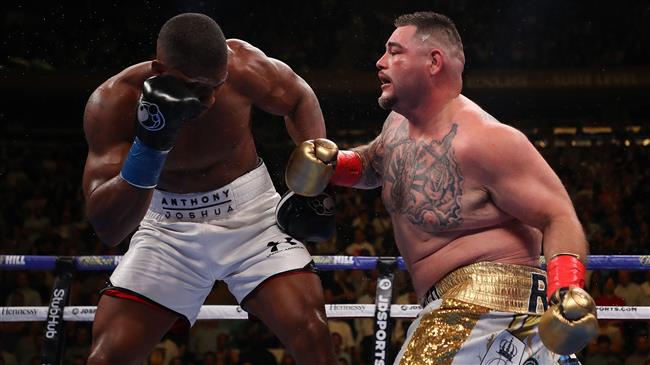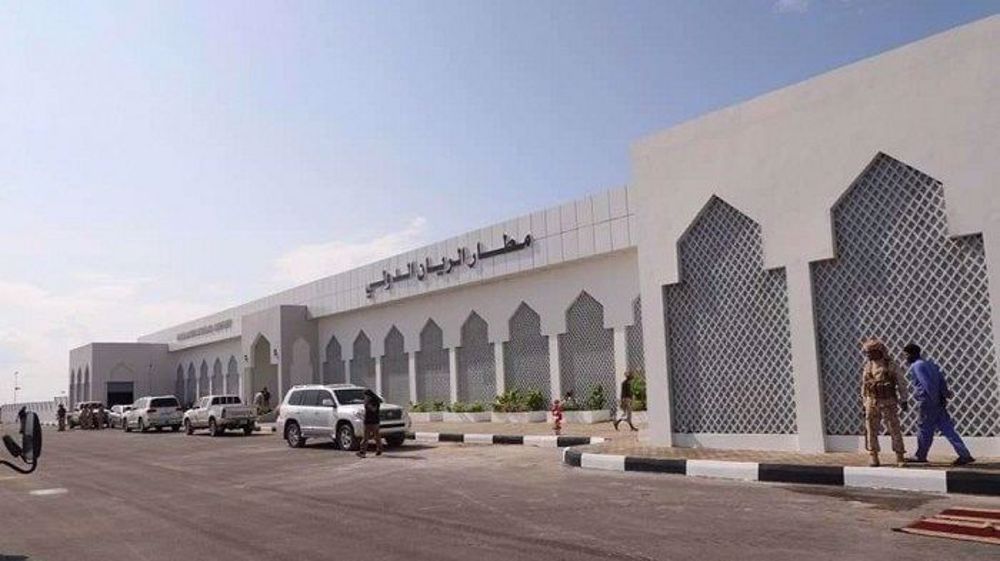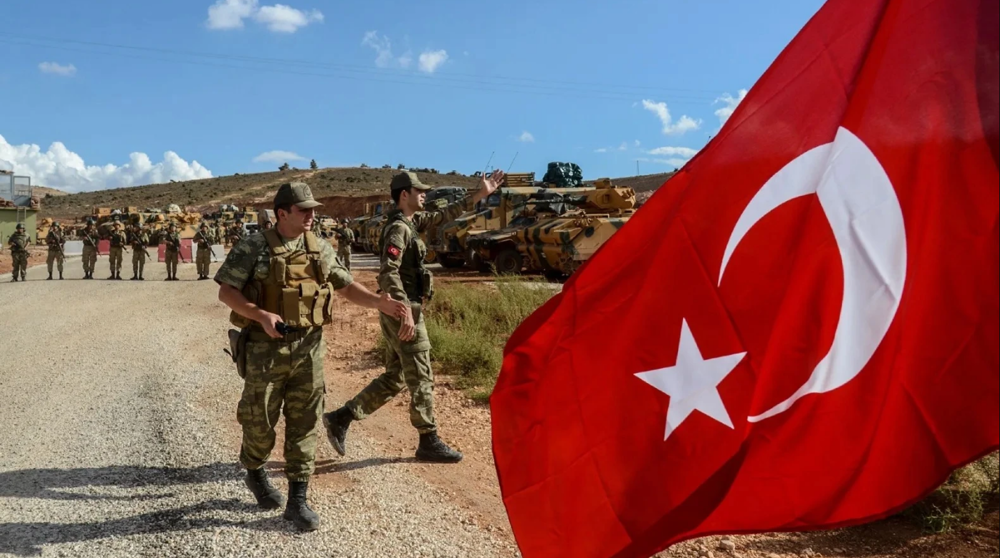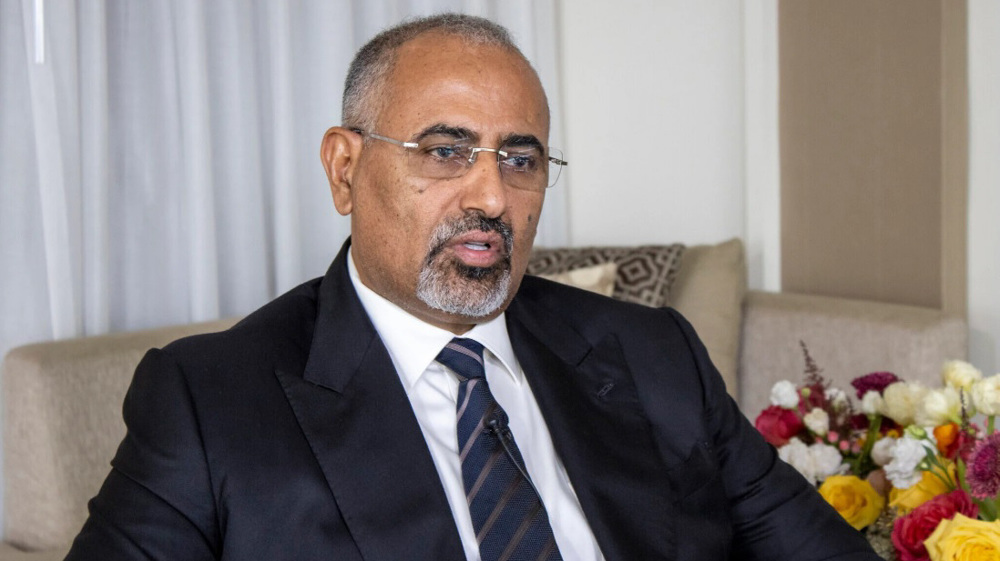Saudi uses boxing event to ‘sportswash’ rights violations: Amnesty
Amnesty International has lambasted Saudi Arabia for using a high-profile boxing event to “sportswash” its tarnished human rights image.
The rematch fight between Britain’s Anthony Joshua and Mexican-American Andy Ruiz Jr is scheduled to be held in the Saudi town of Diriyah, located on the northwestern outskirts of the capital Riyadh, on December 7.
The time and location of the fighting was approved by the International Boxing Federation, World Boxing Association and World Boxing Organization on Friday and announced by Matchroom Boxing, the world's leading boxing promoter.
The first match between Joshua, a former unified world heavyweight champion, and Ruiz, currently the world heavyweight champion, was held in New York in early June, when Ruiz earned a shock seventh-round stoppage victory to hand Joshua his first professional loss.
The duel in Diriyah, dubbed “Clash on the Dunes,” will see Joshua trying to win back the IBF, WBA and WBO titles he sensationally lost to Ruiz.
It’s official! 👊 @Andy_destroyer1 vs @anthonyfjoshua 2 will take place in Diriyah, Saudi Arabia on December 7 🇸🇦 #RuizJoshua2 #ClashOnTheDunes #COTD pic.twitter.com/JqR41ffxQw
— Matchroom Boxing (@MatchroomBoxing) August 9, 2019
Human rights campaigners have criticized the choice of venue, citing the Arab kingdom’s “abysmal” human rights record.
“If Anthony Joshua fights Andy Ruiz Jr in Saudi Arabia, it's likely to be yet another opportunity for the Saudi authorities to try to 'sportswash' their severely tarnished image,” said Amnesty UK's head of campaigns Felix Jakens on Friday.
The term sportswash, credited to 2015’s Sports or Rights campaign, is generally used when corrupt and tyrannical regimes make use of a high-profile sports event as a means to launder their reputation and/or gloss over their miserable records on human rights.
“Despite some long-overdue reforms on women’s rights, Saudi Arabia is currently in the grip of a sweeping human rights crackdown -- with women's rights activists, lawyers and members of the Shia minority community all being targeted,” Jakens added.
Riyadh has faced intense diplomatic fallout over the gruesome murder of dissident journalist Jamal Khashoggi, a US-based Washington Post columnist, which took place in the kingdom's consulate in Istanbul, Turkey, on October 2, 2018.
The ill-fated journalist is widely believed to be killed inside the consulate and his body was disposed in a yet-to-be-disclosed location after being chopped to pieces.
In November the same year, the kingdom’s Public Prosecutor indicted 11 unnamed suspects for the killing, which is believed to have been ordered by Saudi Crown Prince Mohammad bin Salman.
Riyadh, however, has spurned all the allegations linking the killing to bin Salman and instead claimed that the murder has been carried out by a “rogue” group.
“There’s been no justice over the gruesome murder of Jamal Khashoggi,” Jakens further said.
On October 3, 2018, a day after Khashoggi disappeared without a trace, it was announced that the top two men’s tennis players in the world, Rafael Nadal and Novak Djokovic, would take part in a lucrative exhibition match in Saudi Arabia on December 22 that year.
At the time, Amnesty warned the players that the event was “a form of sportswashing.”
Five weeks later, the match between the two tennis giants was called off and tennis was relieved to avoid the embarrassment of lending its name to an event in a country embroiled in the murder of Khashoggi.
Saudi Arabia has also been heavily condemned by the international community and right groups for its brutal campaign along with its allies against impoverished Yemen.
Holding high-profile sports events will also sportswash the documented horrible crimes the Saudi-led coalition is committing against Yemenis on an almost daily basis since the onset of war in March 2015.
“The Saudi-led military coalition in Yemen is carrying out indiscriminate attacks on homes, hospitals and market-places with horrific consequences for Yemeni civilians,” Jakens added.
The US-based Armed Conflict Location and Event Data Project (ACLED), a nonprofit conflict-research organization, estimates that the Saudi-led war has claimed the lives of over 60,000 Yemenis since January 2016.
The years-long military aggression has also taken a heavy toll on Yemen’s infrastructure, destroying hospitals, schools, and factories. The United Nations has warned that more than 24 million Yemenis are in dire need of humanitarian aid, including 10 million suffering from extreme levels of hunger.
The Riyadh regime has also stepped up what appears to be politically-motivated arrests, prosecution and conviction of peaceful dissident writers and human rights campaigners, particularly of Shia minority in Eastern Province.
The Shia-majority province has been the scene of peaceful demonstrations since February 2011. Protesters have been demanding reforms, freedom of expression, the release of political prisoners, and an end to economic and religious discrimination against the oil-rich region.
The protests have been met with a heavy-handed crackdown by the regime, with regime forces increasing security measures across the province.
In January 2016, Saudi authorities executed Shia cleric Sheikh Nimr Baqir al-Nimr, who was an outspoken critic of the Riyadh regime, along with 46 other men on terrorism charges. Nimr had been arrested in Qatif, Eastern Province, in 2012.
Over the past years, Riyadh has also redefined its anti-terrorism laws to target activism.
Lebanese journalist summoned to court for criticizing president
‘The Voice of Hind Rajab’ receives Oscar nomination
VIDEO | Foreign-backed terrorism in Iran
US-backed riots suffered 'humiliating' defeat in Iran: Yemeni leader
Pezeshkian: ‘Unholy rage’ fueled by Iran’s enemies after June defeat
Iran condemns Israeli demolition of UNRWA headquarters in occupied al-Quds
Denmark reasserts Greenland sovereignty as Trump claims ‘total access’
Iran’s political legitimacy comes from ballots and popular will, not foreign powers














 This makes it easy to access the Press TV website
This makes it easy to access the Press TV website